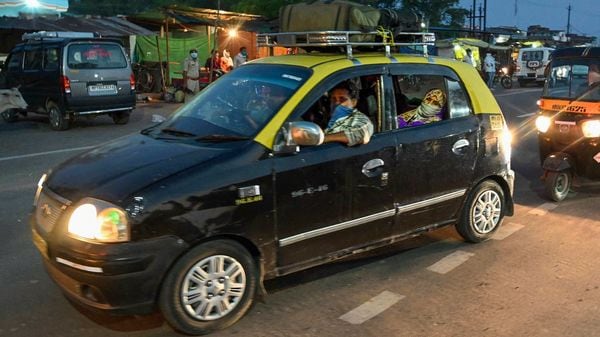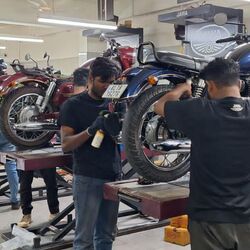Mumbai's Kaali-Peeli taxis continue to face lockdown blues with minimal bookings


Kaali-Peeli taxis in Mumbai continue to witness a sharp decline in bookings even after relaxations in Covid-19 lockdown restrictions.
As Unlock 1 unfolds, it has not brought much respite for these taxi owners as they are only allowed to ferry passengers related to essential services.
As many as 30,000 Kaali-Peeli taxis are registered with Mumbai Taxi Men's Union and only 500 to 1,000 are plying for essential services during the lockdown.
Also check these Vehicles
Also Read : Combating Covid-19: Mumbai auto drivers use 'isolation cover' for safety
"The recent order by the government to allow Kaali-Peeli taxis only for essential services is not justified as there are a lot of passengers on the road, who are not getting conveyance either in buses or autos. But taxis are unable to take them as police are taking action against taxis owners for taking non-essential passengers," said General Secretary of Mumbai Taximen's union AL Quadros.
"Many of our taxi drivers and owners have left for their native places and if this kind of order from government and action from police remains they are less likely to return. The government should have more empathy towards taxi drivers, specially Kaali Peeli taxi drivers," he added.
Also Read : This state govt released ₹10k allowance to each of 2.62 lakh auto,taxi drivers
However, the General Secretary said Ola, Uber and other such operators are not facing such problems, "which clearly shows that the government is not favouring the Kaali-Peeli taxis operators".
The Maharashtra Government has extended Covid-19 lockdown till June 30 and has also issued directives to ease restrictions under the exercise termed as 'Mission Begin Again.'
Also Read : Auto, taxi drivers unions hail Delhi govt’s move to lift cap on number of riders
The movement of individuals will remain strictly prohibited between 9 pm and 5 am except for essential activities. Local authorities shall issue orders in the entire area of their jurisdiction under appropriate provisions of law such as prohibitory orders under Section 144 of CrPC, and ensure strict compliance.








 40 kWh
40 kWh 150 Km
150 Km
 3996.0 cc
3996.0 cc Petrol
Petrol

















